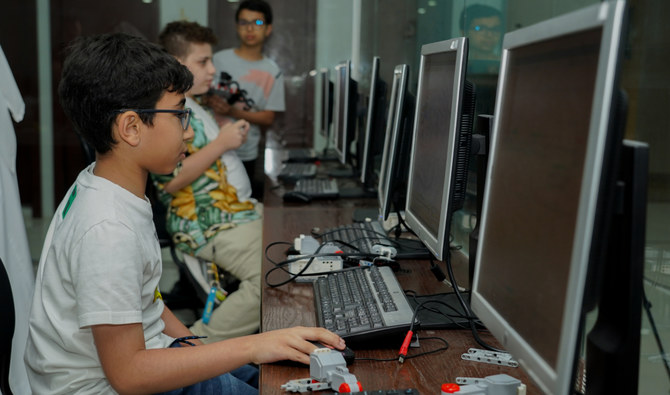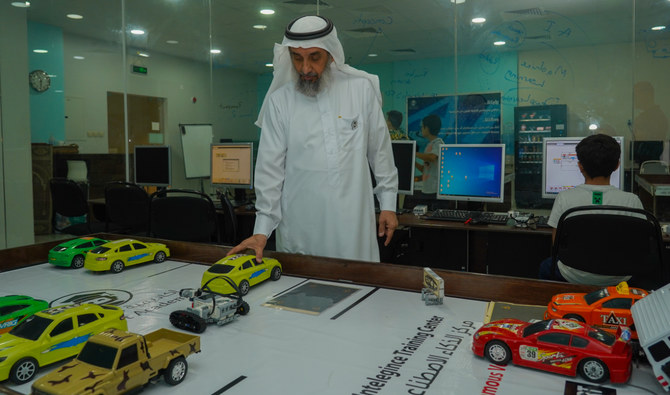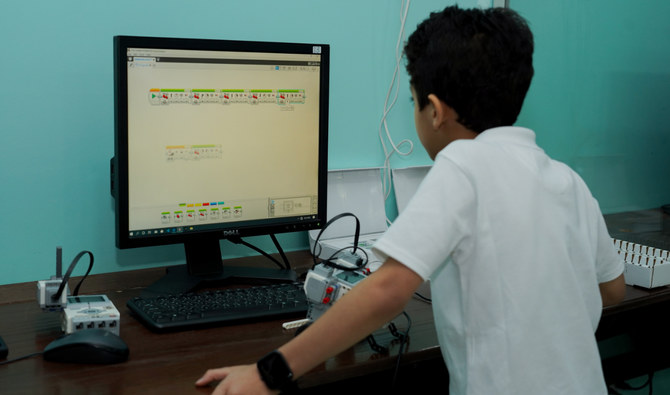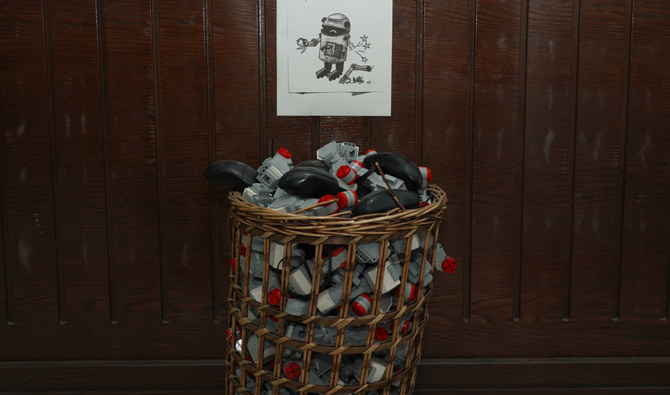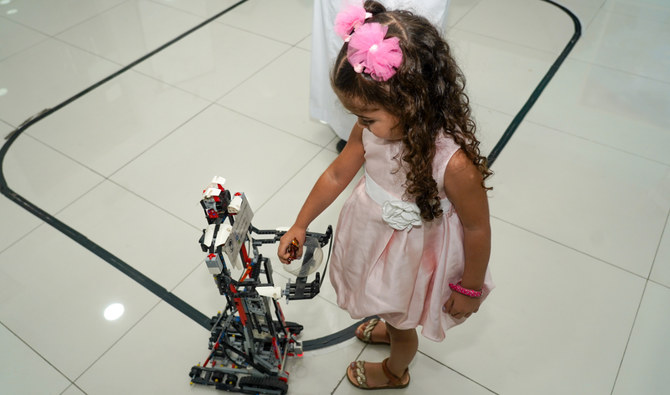ALKHOBAR: On any given Saturday night in Khobar City, a steady stream of boys can be seen traveling up an escalator in an anonymous-looking building on their way to a workshop in which they are tasked with using their hands, minds and imaginations to build robots.
When the session at the Robot Academy gets underway the room soon begins to buzz with activity as the youngsters, some of them teenagers, some much younger, get busy. Some of them work in groups, some alone, but either way they are entirely focused on the tasks at hand, with not a single smartphone in sight.
Everyone is busy working building the machines, typing the commands that bring the robots to life into control programs on tablet computers, or trying to figure out exactly how to get their robots to move in exactly the way they want.
The Robot Academy is the brainchild of Saud Almuhaidib. As the author of a computer science textbook used in high schools in the Kingdom, and with more than 40 years of experience, he is a veteran in the field. The qualifications and accolades he has received over the year fill a wall. He studied for his bachelor’s degree at a university in Florida and graduated in 1980 with distinction in computer science. He earned a masters degree in graph heuristics from King Fahd University of Petroleum and Minerals in 1991, and a PhD in artificial intelligence from Leeds University in the UK in 2002.
He founded the Robot Academy in 2017 because he saw that the Kingdom was beginning to embrace the use of artificial intelligence and he wanted to be a part of it. He said he wanted to help young people to get a head start in this emerging field, and decided to start with his hometown.
“Robots is the new world,” he told Arab News. “Robots and artificial intelligence is the science that will be in every science.
“I’ll give you an example. Forty years ago, when I had just graduated from university, there were very few computers in the world. People used handwriting for things like ticketing for airplanes. When computers came along, gradually they substituted these things and tasks became automated. Now, computers are in everything: They’re in medicine, they’re in engineering, they’re in education — everything.
“I started (the Robot Academy) in Khobar because I was born in Khobar and raised in Khobar. We want to participate in Vision 2030 by making Saudi Arabia a hub for artificial intelligence in the coming 10 years.”
The academy has colorful bins filled with Lego bricks, a room with cars that students control by inputting commands and then testing them. And of course there is also plenty of space for the youngsters to build robots and let them roam, trundle or walk around.
The students are introduced to the science of robotics through age-appropriate modules for children as young as five and into their late teens. They learn how to control the motors that power the machines through computer programs that instruct them to move left or right, forward or back, accelerate or decelerate. If they can master such concepts, Almuhaidib said, “they can do almost anything.”
He often starts a conversation with a student by saying, “Tell me how this works — I forgot,” to give them the chance to show what they have learned. The youngsters seem to revel in dissecting and analyzing every component of the robots they bring to life, and explaining how it functions to their ever-patient and calm mentor and teacher.
Though this class at the academy is for boys, girls are not excluded from the chance to learn about robots. Almuhaidib realized that he had to involve girls; his daughter was into robotics and most of his seven children are involved in the field in some way.
However, he wanted to keep the genders separate so each could learn and develop at its own pace. Girls tend to be more organized and pay closer attention, he said, while boys can be a bit more chaotic.
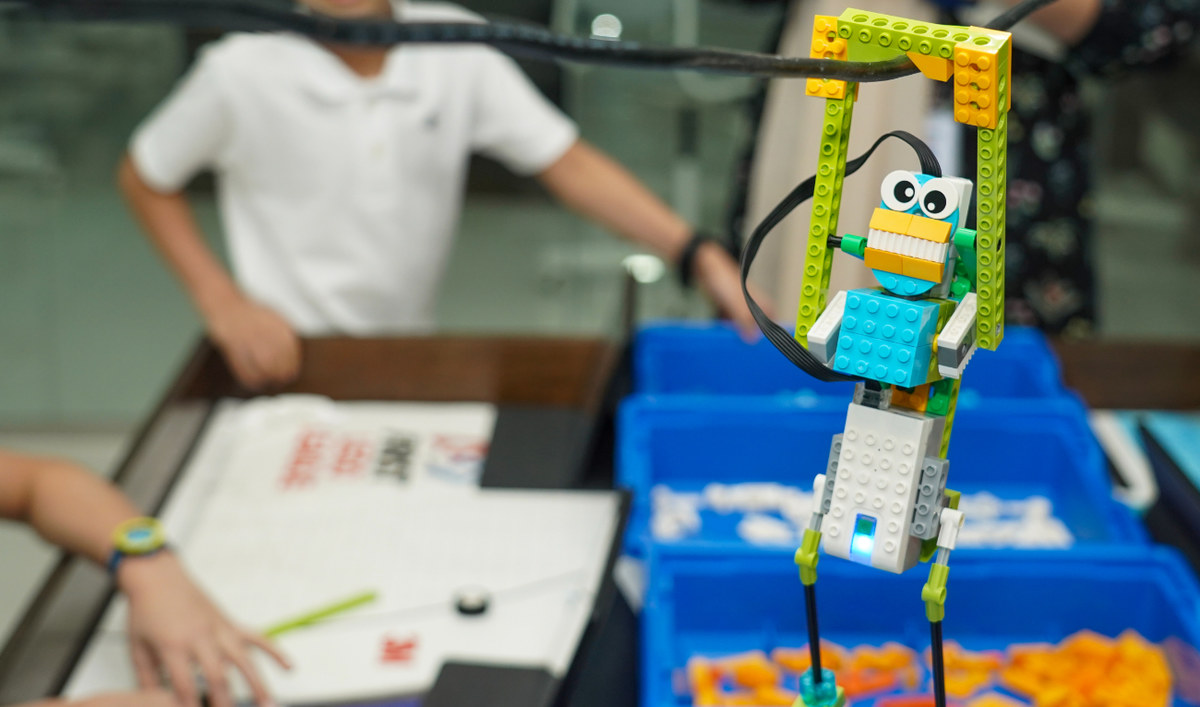
(AN photo by Huda Bashatah)
For the girls’ classes, Almuhaidib tried to find the most qualified person he could to lead them. After carefully considering a list of candidates, he realized the perfect choice was under his nose — and his roof: his wife, Nuhad. She initially took the job on a temporary basis but discovered that she enjoyed it immensely and made it permanent.
“The world has entered the fourth industrial revolution and artificial intelligence is an essential part of it,” she said. “We must strive to build the capabilities of our girls and prepare a promising generation for the future by helping them absorb the science of artificial intelligence in the best and most enjoyable way,” Nuhad told Arab News.
“Here at Robot Academy, girls acquire the skills of creative thinking, analysis, and logic. One learns the art of design, mechanics and programming, and integrates learning into practical life. We developed an educational system capable of creativity and innovation.”
The girl’s classes include four modules, each of which runs for a month and has six levels. The first is for grades 1 to 6 and. Like the other modules, it has six levels, at each of which students learn new skills and concepts for building and programming robots. The second module, for grades 7 to 12, focuses on more advanced programming skills. The third module covers machine learning, while the fourth module teaches students about robot electronics and ends with them building their own large robot.
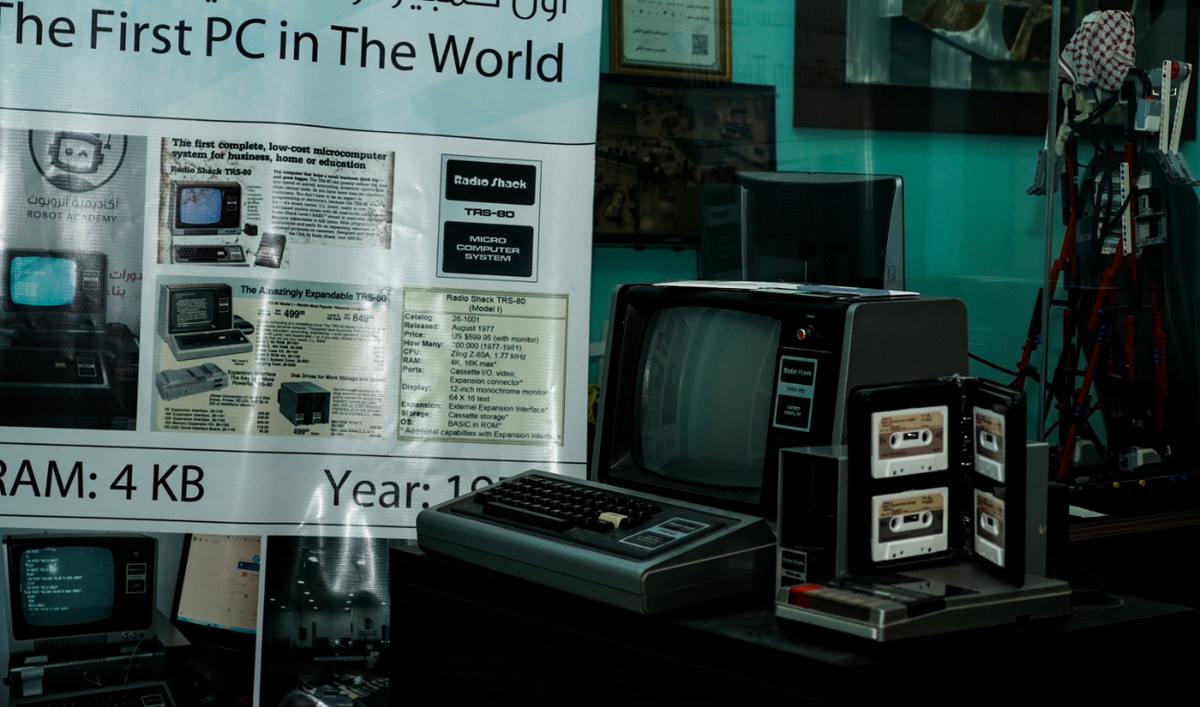
(AN photo by Huda Bashatah)
One of the male students, Rakan Ghassal, who is in the sixth grade, demonstrated the way in which a simple robot waiter works.
“This is the line-follower robot,” he said. “How does this work? It measures the intensity between the white and the black. This is a black line and this is a white floor, so it measures the intensity. If it’s high, it’ll turn; if it’s low it’ll turn.
“If you stand in front of it, it wants you to move. So, how this works is that there’s a proximity censor here. It measures the difference between something in front of it. So it will stop because there is something in front of it, it won’t move.”
The Robot Academy encourages students to be ambitious and experiment with technology, even if they fail. Statistically, many experiments fail initially but Almuhaidib likes to use this as a learning tool and a teachable moment.
In fact, there is a bin full of “failed” robot casualties prominently displayed by the main door to the academy. Almuhaidib gently reminds his students that failing is part of the scientific process: “In order to succeed, a few rough drafts — or broken robots — need to live and die first."
He also ensures that the academy fosters a culture of change by allowing boys to be boys — and girls to be girls — while learning to creating robots that could help build the future.
In addition to the original Robot Academy in Khobar City there is also one in Riyadh, and it is coming soon to Jeddah. To find out more about the academy, including how to enroll and how much it costs, contact @RobotAca for boys and @G.RobotAcademy for girls.



